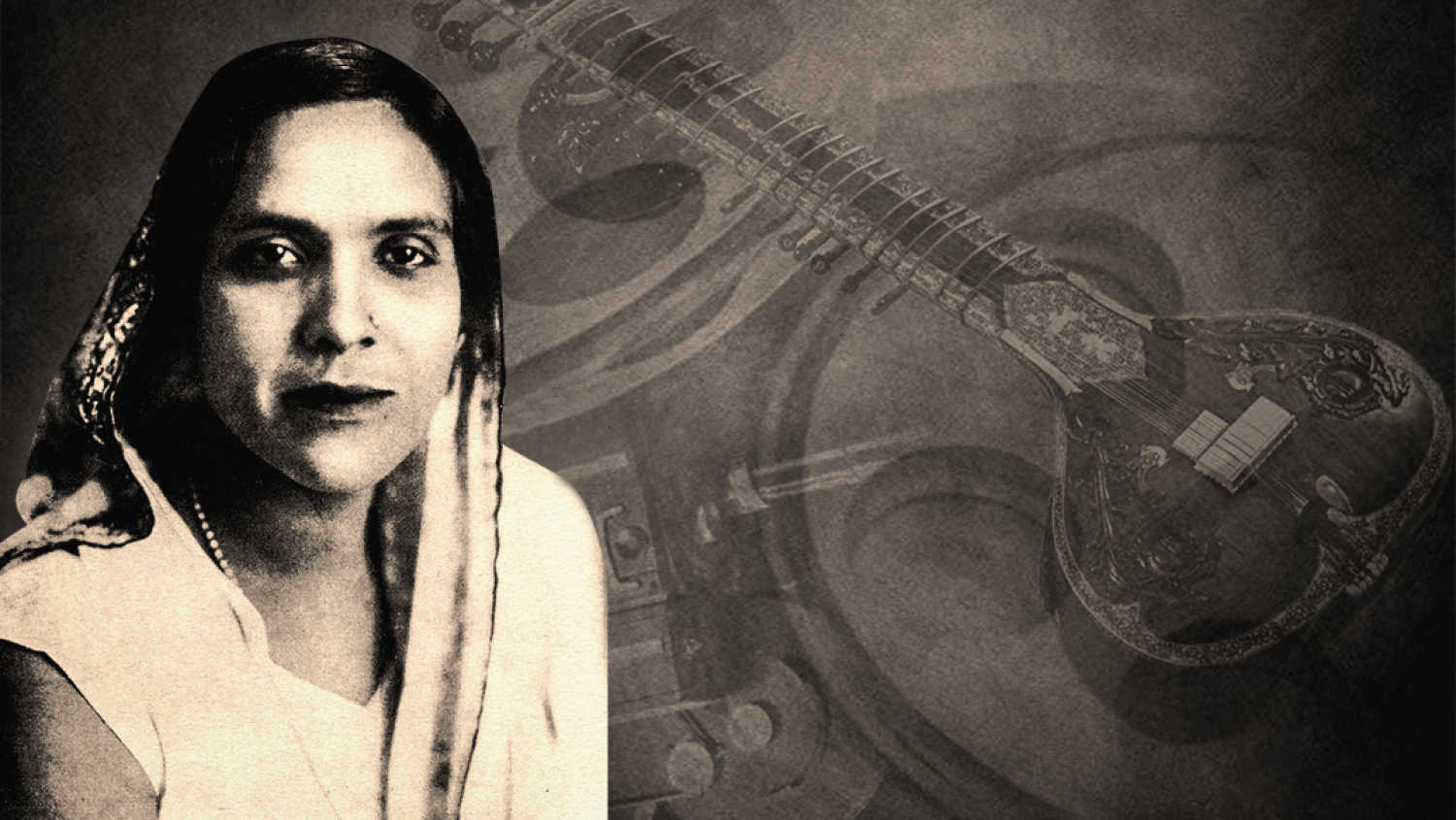We wrap up our special series on women in early Indian cinema with a look at the imperious Jaddanbai, singer, actress, composer, lyricist, director, screenwriter and producer, who left an indelible mark on film history.
The multi-hyphenate Jaddanbai, Hindi cinema’s earliest woman composer
New Delhi - 31 Mar 2020 23:45 IST


Sukhpreet Kahlon
Born in 1895 to Daleepa Begum and Mian Jaan, Jaddanbai was the eldest of four children. Her mother was a professional singer from the courtesan tradition and young Jaddanbai, blessed with a mellifluous voice, started receiving training in Hindustani classical music at the age of four. Later, it was Gauhar Jaan, one of the first women to record music on 78 rpm discs in India, who took her to the renowned singer and undisputed master of the thumri, Ustad Moinuddin Khan, for training. Aside from her singing talent, Jaddanbai was well-read and proficient in Urdu, Hindi, Persian and Bengali.
Jaddanbai's singing attracted admirers like moths to a flame and soon filmmakers started knocking on her door. Hakim Ramprasad, a Lahore-based producer, approached her and her first film, Raja Gopichand (1933), was directed by BM Shukla and starred Harishchandra Bali, who later achieved fame as a music director.
The film was a success and Jaddanbai accepted an offer from Ram Dariyani, who brought her to Bombay with the offer of the role of leading lady in the Imperial Studios film directed by Moti B Gidwani, Insaan Ya Shaitan (1933). The story of the film was based on a novel by Mary Corelli called The Sorrows of Satan. The popularity of this film turned Jaddanbai’s attention towards cinema decisively and she shifted from Calcutta to Bombay permanently.
Next followed the Sagar Movietone film directed by Ramnik Desai, Dancing Girl / Nautchwali (1934) alongside Yakub, Mehboob and Swaroop Rani, where she played a courtesan. Her daughter Nargis acted for the first time as a child artiste in the film and was credited as Baby Rani.
The same year, Jaddanbai acted in the Eastern Art production Prem Pariksha directed by GR Sethi and started her own film company, Sangeet Movietone, and made Talash-e-Haq or Search For Truth (1935). Directed by Chimanlal Luhar and starring Jaddanbai, Yakub and Ashiq Hussain, the film saw her play multiple roles. She scored the music and wrote the story and dialogues for the film, which tells the story of Feroza, a prostitute who has many vices but sets out to redeem herself.
The film made Jaddanbai the foremost woman music director in cinema, an honour she shares with Khursheed Homji aka Saraswati Devi, who began her career as music director the same year with the Bombay Talkies film Jawani Ki Hawa (1935).
In 1936, Jaddanbai directed and scored the music for Hridaya Manthan aka Call Of The Soul (1936) and Madam Fashion (1936), in which she also acted and wrote the lyrics for the dozen songs in the film. This was followed by Jeewan Swapna / Journey's End (1937) and the social Moti Ka Haar (1937), which was inspired by incidents in her life and looked at the struggles and hardships in the life of a courtesan.
The scripts she wrote examined social hypocrisy and prejudice towards women. Her life as a courtesan made her face some unpleasant circumstances and she was determined to not let her daughter follow in her footsteps.
Aside from being a formidable, imperious woman with business acumen, Jaddanbai was a dedicated and ambitious mother who provided every opportunity for her daughter to blossom into an actress. In Stars from Another Sky, Sa'adat Hasan Manto writes about this aspect: 'Nargis could have become only an actress, given the fact of her birth. Jaddan Bai was getting on and though she had two sons, her entire concentration was on Baby Nargis, a plain-looking girl who could not sing. However, Jaddan Bai knew that a sweet voice could be borrowed and if one had the talent even the disadvantage of ordinary looks could be surmounted.”
With a sharp eye on recognizing opportunities and talent, Jaddanbai also helped other people along the way, in particular the poet and lyricist Majrooh Sultanpuri and the actress Nimmi, who was also the daughter of a courtesan, Wahida Jaan.
During her sunset years though, Jaddanbai faced some tough times as her film Romeo & Juliet (1947), starring Sapru and Nargis, did not do well. On the personal front, her sons, Akhtar Hussain and Anwar Hussain, did not get along with each other and, despite her strong disapproval, Nargis continued her relationship with actor-filmmaker Raj Kapoor.
Jaddanbai passed away on 8 April 1949, leaving a rich legacy behind. Here is a non-film ghazal sung by her, 'Nukta cheen hai gham-e-dil'. Enjoy her talent and let us know in the Comments section below what you thought of this series.
Film historian Iqbal Rizvi contributed to this article with research material and insights.
Related topics
Women's Day




